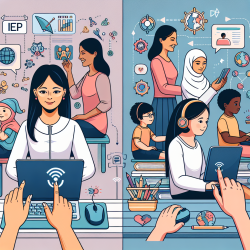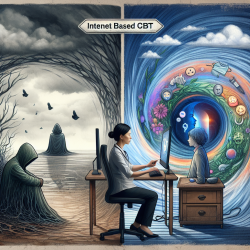The COVID-19 pandemic has fundamentally altered the landscape of psychotherapy, pushing many practitioners to adopt teleconsultation. The research article, "Psychotherapy Under Lockdown: The Use and Experience of Teleconsultation by Psychotherapists During the First Wave of the COVID-19 Pandemic," provides valuable insights into this transition. Here, we summarize key findings and offer actionable steps to help practitioners enhance their teleconsultation skills.
Key Findings from the Research
The study surveyed 246 French-speaking psychotherapists and revealed several important trends:
- Most psychotherapists had no prior experience with teleconsultation before the pandemic.
- Teleconsultation was perceived to worsen the therapeutic relationship but improve work organization.
- Empathy, congruence, and therapeutic alliance were significantly degraded online compared to in-person sessions.
- Privacy and confidentiality concerns were prevalent, with many therapists using non-compliant platforms.
- There was a lack of specific adaptations to the teleconsultation setting.
Actionable Steps for Practitioners
Based on these findings, here are some practical steps to improve your teleconsultation practice:
- Enhance Technical Skills: Invest time in learning the technical aspects of teleconsultation platforms. Ensure you have a stable internet connection and a private, quiet space for sessions.
- Adapt Your Environment: Create a neutral, professional video background. Ensure your clients are in a safe, private space as well.
- Focus on Privacy and Confidentiality: Use platforms that meet legal and ethical standards for data protection. Inform clients about the measures you are taking to protect their privacy.
- Encourage Client Engagement: Provide information on the efficacy of teleconsultation and offer trial sessions to help clients get comfortable with the new format.
- Adapt Therapeutic Interventions: Tailor your interventions to fit the teleconsultation setting. For example, use screen sharing to show visuals or send materials via email before the session.
Conclusion
Teleconsultation offers both challenges and opportunities. By addressing technical issues, ensuring privacy, and adapting therapeutic practices, psychotherapists can enhance the effectiveness of their remote sessions. Training and evidence-based information are crucial for developing a safe and ethical teleconsultation practice framework.
To read the original research paper, please follow this link: Psychotherapy Under Lockdown: The Use and Experience of Teleconsultation by Psychotherapists During the First Wave of the COVID-19 Pandemic.










